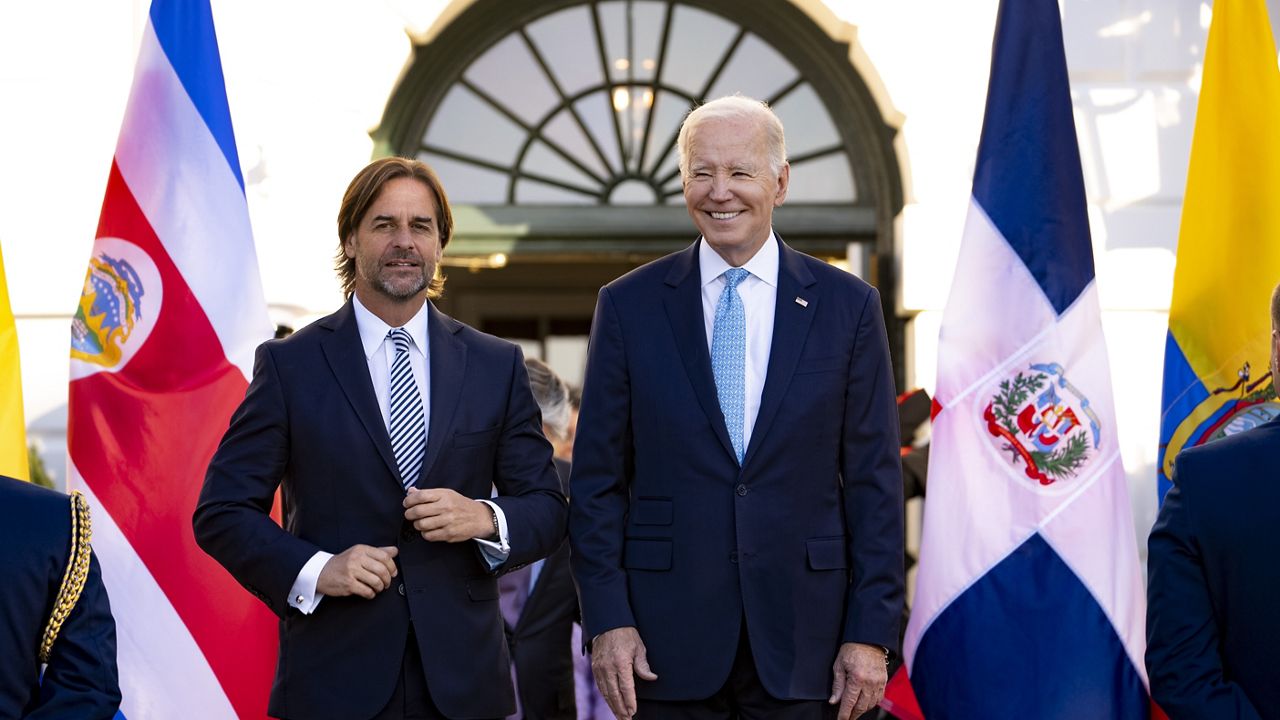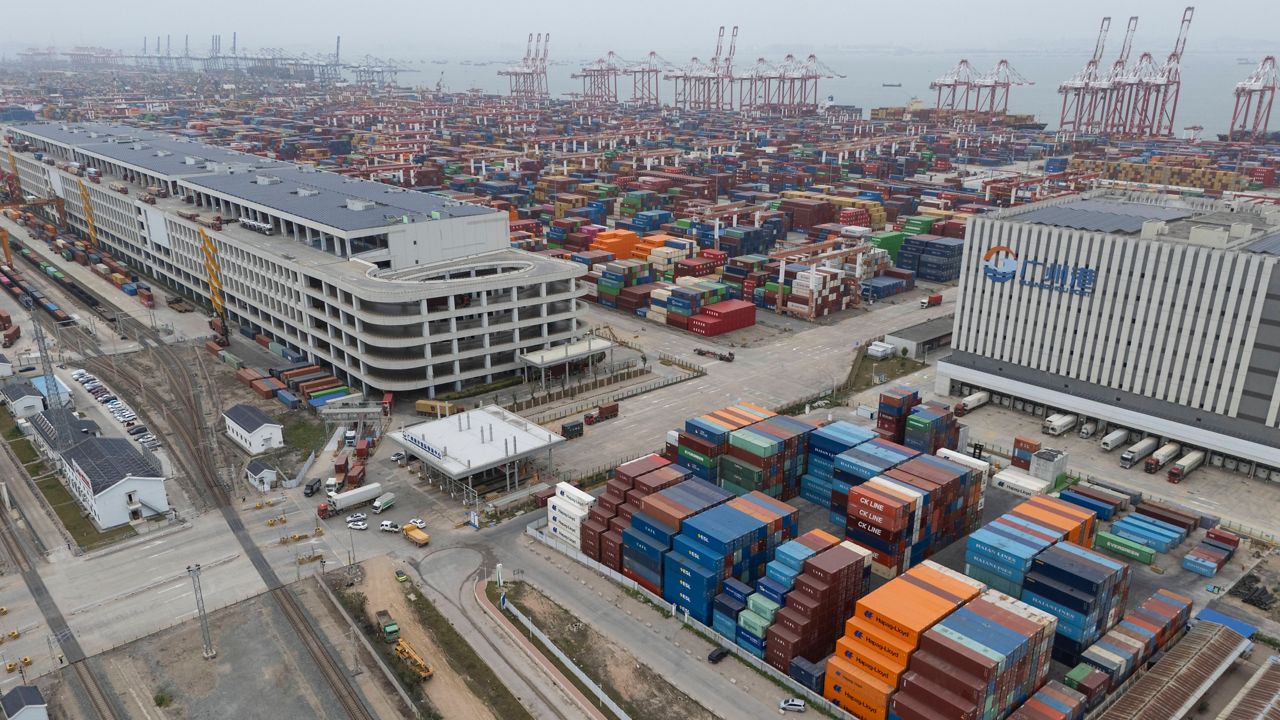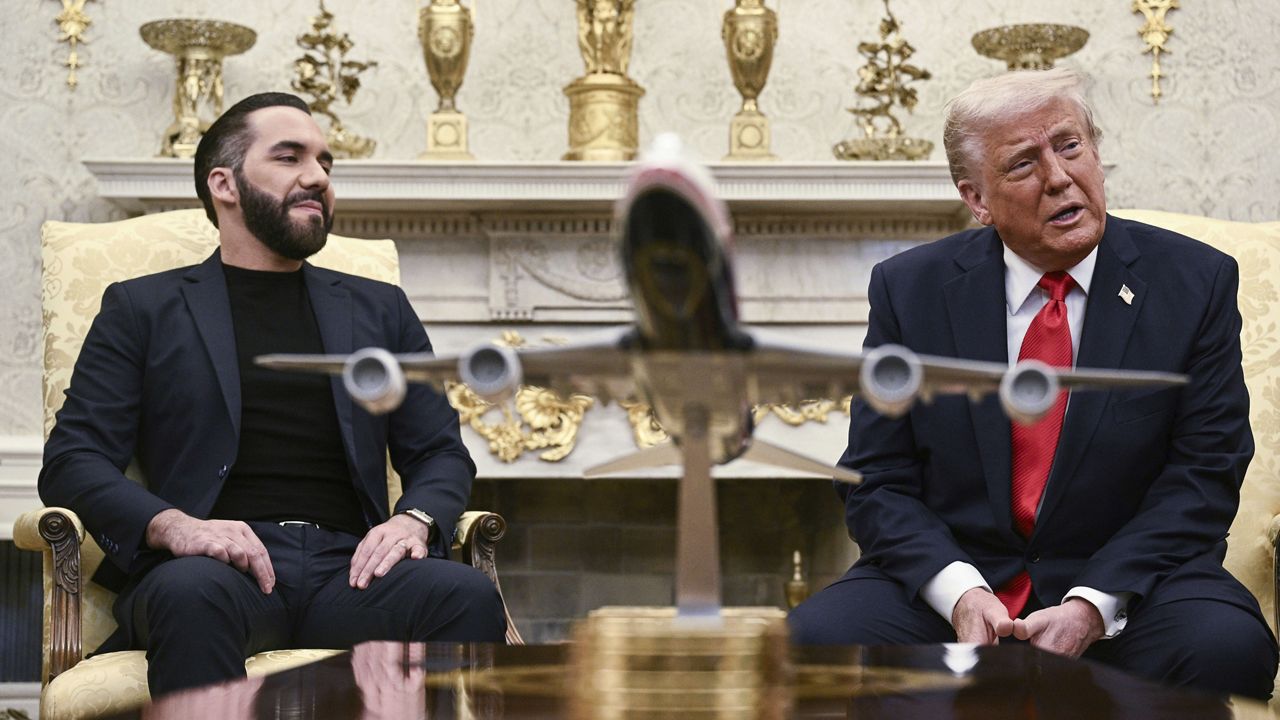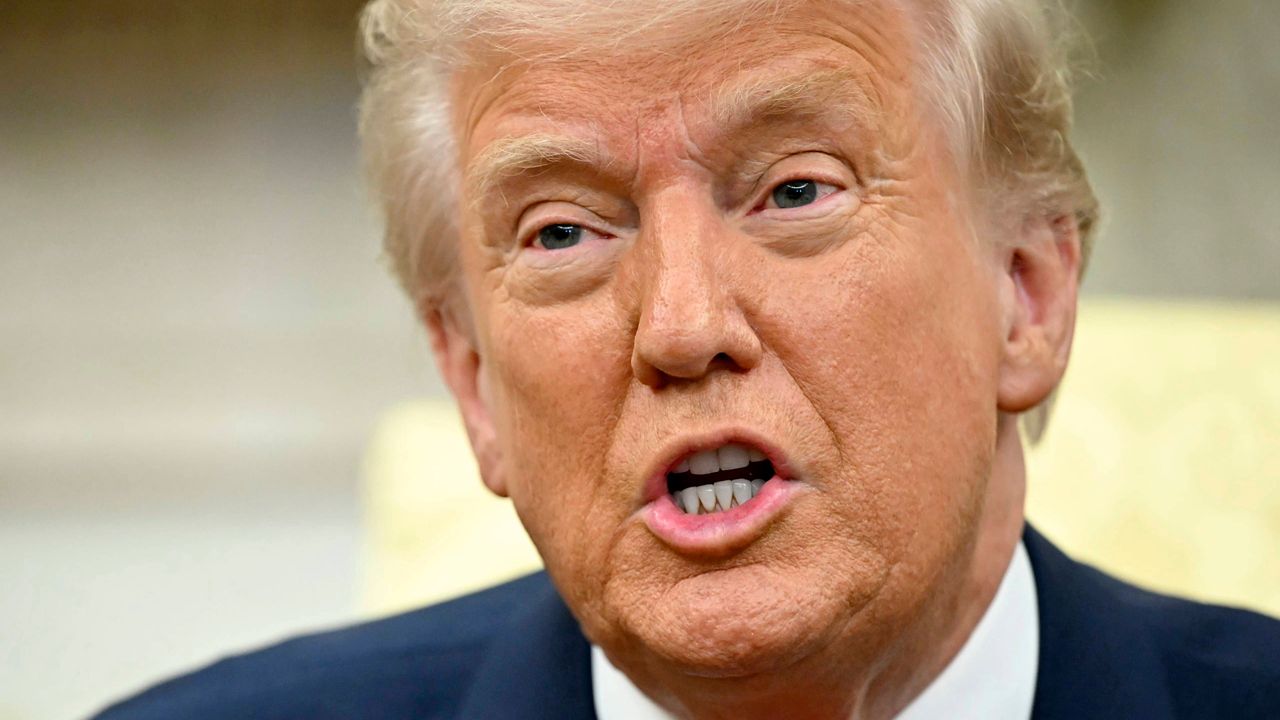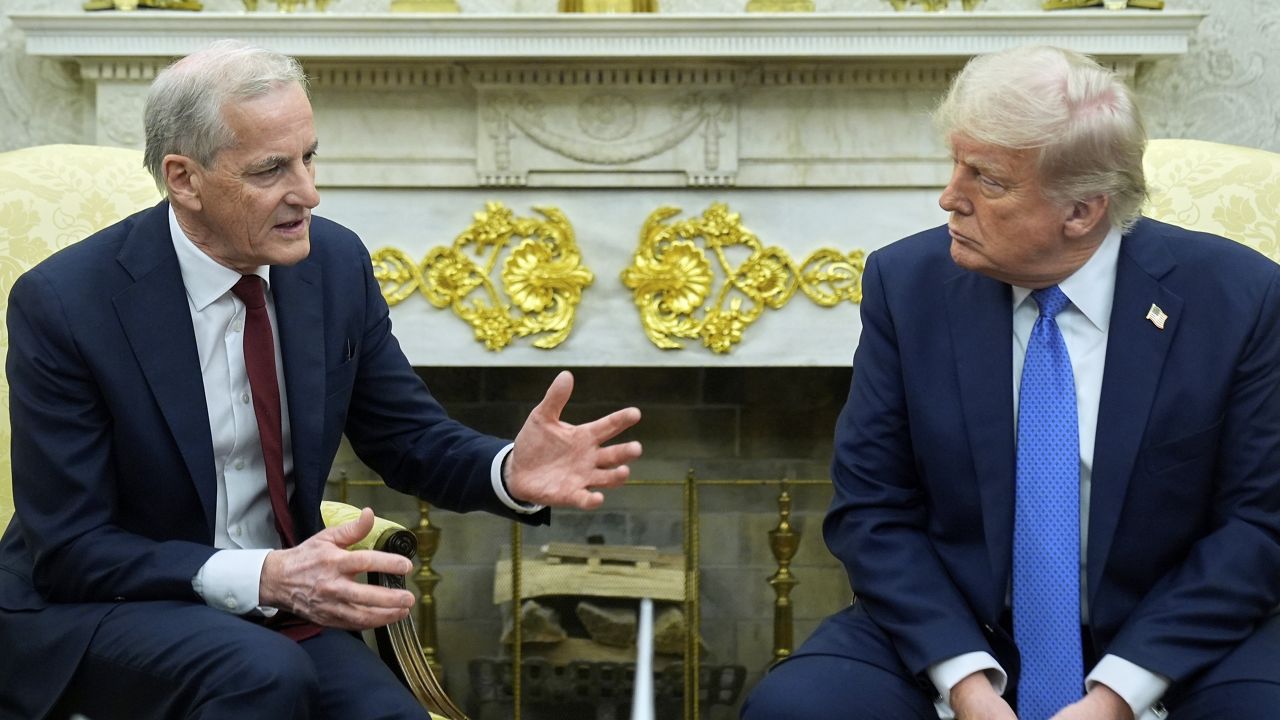Hosting nearly a dozen leaders from nations across the Western Hemisphere at the White House on Friday, President Joe Biden announced new efforts to bolster economic collaboration in the region – with countering China’s influence and addressing migration issues that have been a thorn in his side since he took office top of mind.
Friday’s inaugural summit – titled the Americas Partnership for Economic Prosperity Leader’s Summit – was born out of an agreement made at last year’s Summit of the Americas in Los Angeles.
“One key outcome of the summit was this partnership and 12 countries committing to drive innovative approaches to shared challenges, to grow our economies from the bottom up and the middle out,” Biden told fellow Western Hemisphere leaders on Friday, invoking the same message he uses to describe his economic agenda at home.
The U.S. president was joined by the leaders of Canada, Chile, Colombia, the Dominican Republic, Costa Rica, Barbados, Ecuador, Peru and Uruguay in the East Room of the White House for Friday’s meeting. Mexico sent its foreign minister in place of President Andrés Manuel López Obrador to participate. Panama also sent its top diplomat.
Biden told his fellow leaders the mission was to make “the Western Hemisphere the most economically competitive region in the world.”
“I think that’s totally within our reach,” he added.
To that end, Biden used the summit to announce efforts to strengthen investment in the region through the US International Development Finance Corporation and the Inter-American Development Bank. The president pledged the creation of a new platform to “channel billions of dollars toward building sustainable infrastructure in the hemisphere and strengthening critical supply chains.”
“Modern ports, clean energy grids, digital infrastructure – these are the building blocks, the building blocks, for a competitive and resilient economy,” he declared.
The move builds on the United States’ efforts to bolster its relationships with Latin American nations as China’s influence in the region grows and the economic competition between the U.S. and China – the world’s two largest economies – heats up.
“We want to make sure that our closest neighbors know they have a real choice between debt-trap diplomacy and high quality, transparent approaches to infrastructure and to development,” Biden said, just after making sure to emphasize that the U.S. is “already the largest source of investment across Latin America and the Caribbean by far.”
Also among Friday’s announcements was the launch of a program to aid entrepreneurs in the region “develop and fund their ideas.”
All of the promises to bolster cooperation and spur more resilient economies come with the hope it will help tackle migration issues plaguing the hemisphere.
Biden mentioned the declaration on migration signed at last year’s Summit of the Americas, in which nearly 20 nations in the region agreed to work on boosting aid to countries hosting large numbers of migrants, seek ways to expand legal pathways and promote humane border management.
“I've asked the United States Congress for supplemental funds to carry out this three-part strategy in our country and I urge them to act quickly,” Biden said, referring to his more than $100 billion request for aid to Israel amid its war with Hamas, Ukraine as it fends off Russia’s invasion, the Indo-Pacific and U.S.-Mexico border security.
The bill faces headwinds in Congress where the House, in response to Biden’s request, just passed a bill that included only the aid for Israel and left out Ukraine, the Indo-Pacific and the border. The bill – which offsets the cost by taking money allocated for the Internal Revenue Service – is unlikely to pass the Democratic-controlled Senate and the White House has already said it would veto it.
Democrats want to pass Israel, Ukraine, Indo-Pacific and border funding in one bill.
New House Speaker Mike Johnson, R-La., has said he will later bring a second bill to the floor that combines Ukraine aid and border security funding. Republicans have made Biden’s handling of the U.S.-Mexico border one of their key criticisms of the Democratic president’s administration as the U.S. wrestles with record numbers of migrants illegally crossing into the country.
“In each of our countries, our people are young, dynamic, diverse, poised to seize the future. I think they really are,” Biden said to conclude his remarks on Friday. “All we need to do is keep going, keep delivering on the positive vision we all share for a region that is secure, prosperous and democratic.”




